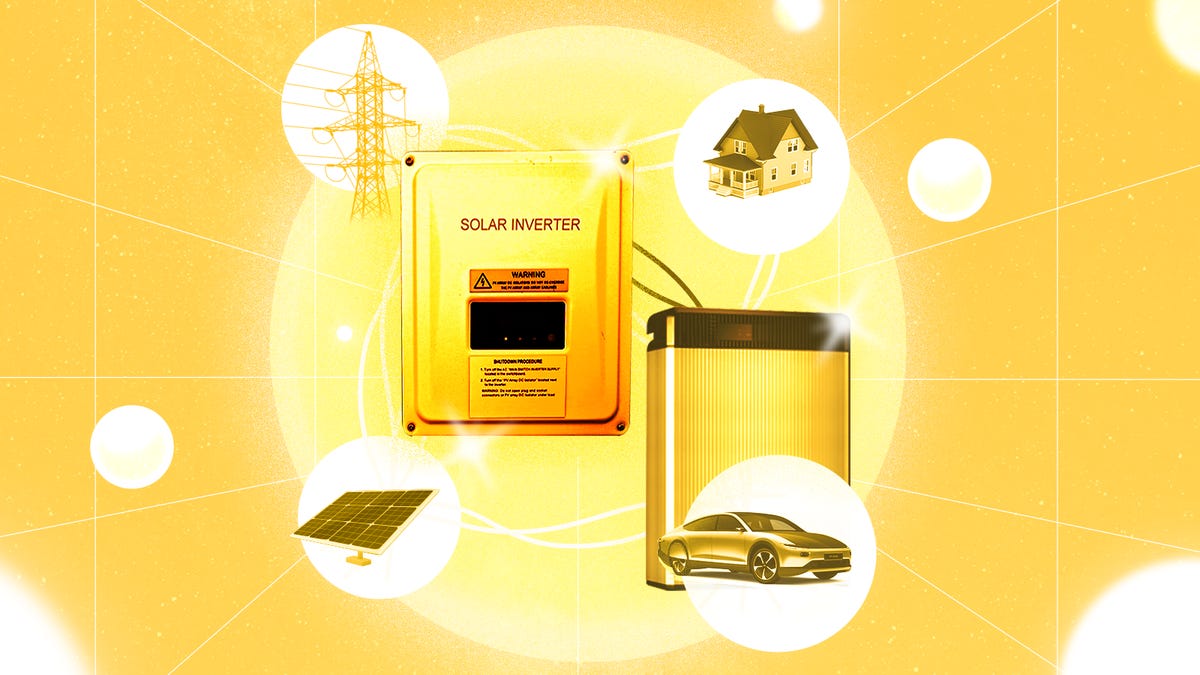Control Where Your Solar Energy Goes With a Hybrid Solar System
Sell your solar energy to the utility or store it in a battery for later use. The choice is yours with a hybrid solar setup.

Combining solar panels with storage could unlock more benefits.
The independence of having a solar panel system is liberating. Imagine being able to control where your excess energy goes and when? You can with a hybrid solar system.
A hybrid solar system empowers a homeowner to choose where the energy they generate is directed: either to the grid where the local utility might pay for those electrons or into a home battery system where it can be saved and stored for later use. In essence, a hybrid solar system allows you to choose when you are on or off the grid.
Going solar is typically about cashing in on the free energy the sun offers to sell it to the local utility, and having a backup source of power when the grid goes down. "You cannot always use your solar modules if the power goes out," explained New York Solar Energy Society founder Wyldon Fishman.
Can solar panels save you money?
Interested in understanding the impact solar can have on your home? Enter some basic information below, and we’ll instantly provide a free estimate of your energy savings.
To get both the utility savings and the peace of mind that comes from connecting your system to a backup battery, you're also going to have to go hybrid.
What is a hybrid solar system and how do they work?
Hybrid systems typically combine solar panels with both a grid-tied interface and the series of charge controllers, batteries and inverters found in off-grid systems.
If you have solar panels on your roof without batteries, and you take advantage of net metering with your local utility, it's possible that the only time you ever think about your solar system is when you see the solar credit on your utility bill.
A hybrid system is a little bit more complicated than a standard grid-tied system. It needs to keep track of and control not just the electricity flowing between your panels and the grid, but also the charge of your solar batteries and the flow of energy to them.
A hybrid solar system will typically have one or more controllers that allow you to send the excess solar energy coming from your panels either to your battery storage or to the grid. It's also possible to set your system to charge your battery first and send power to the grid only when it's full.
Using the energy from your battery might also require additional components like a charger for your electric vehicle, if you have one, and an inverter to convert the direct current in the battery to household alternating current. This is all in addition to the grid tie-in hardware most systems have. It is also possible to forgo the grid connection entirely and have a completely off-grid panel and battery system.
To achieve this, you'll need a hybrid solar inverter. A hybrid inverter is a battery and inverter combination deigned for this reason -- to be able to choose when to be on the grid or off.
Read more: Best Solar Inverters of 2023
Pros and cons of a hybrid solar system
A hybrid system brings two different approaches to solar together with numerous benefits and a few downsides to consider.
Hybrid solar system pros
- The ability to tap into your stored solar power generation when the grid goes down.
- In places the utility pays more for your electricity at certain times of the day, you can store solar energy in batteries, releasing it onto the grid at peak usage times in order to maximize your savings.
- If you're charged more for electricity at certain times of the day, using energy from your battery can help you avoid high electricity rates.
- You may choose to use up the extra charge in batteries on site at your own discretion.
- Tax credits and other incentives can offset some of the cost of a hybrid solar system.
Hybrid solar system cons
- Batteries are relatively expensive, typically costing several thousand dollars for an average system.
- Hybrid systems also require additional components, further increasing the total price.
- The systems can be more complicated to install than strictly grid-tied or off-grid systems.
Is a hybrid solar system right for me?
If you're only interested in solar for the savings that comes from feeding into the grid, or you don't have the option to tie into the grid at all, then a hybrid system probably isn't worth considering.
According to Corey Ramsden, the vice president for Go Solar programs at Solar United Neighbors, going hybrid is often driven by a desire for a different form of backup power rather than a generator.
"It is very much a question of how much is it worth to you when the power goes out? How often does it go out? What are you risking by having no power? Critical medical equipment for example. It's a very specific question to each homeowner."



